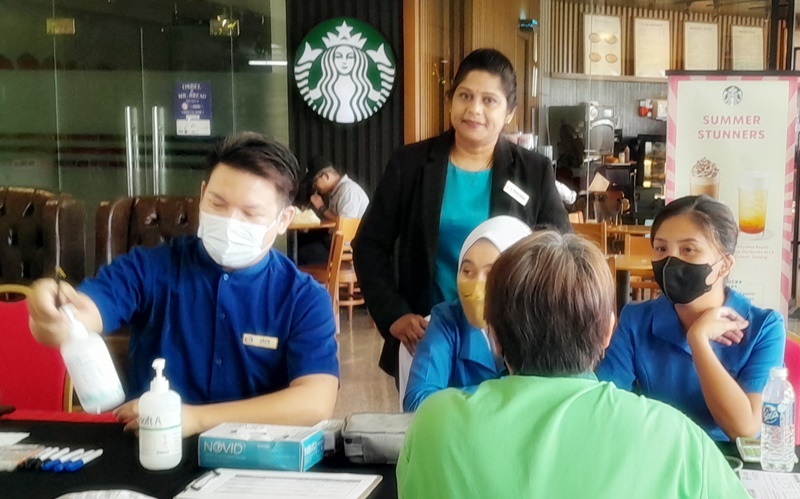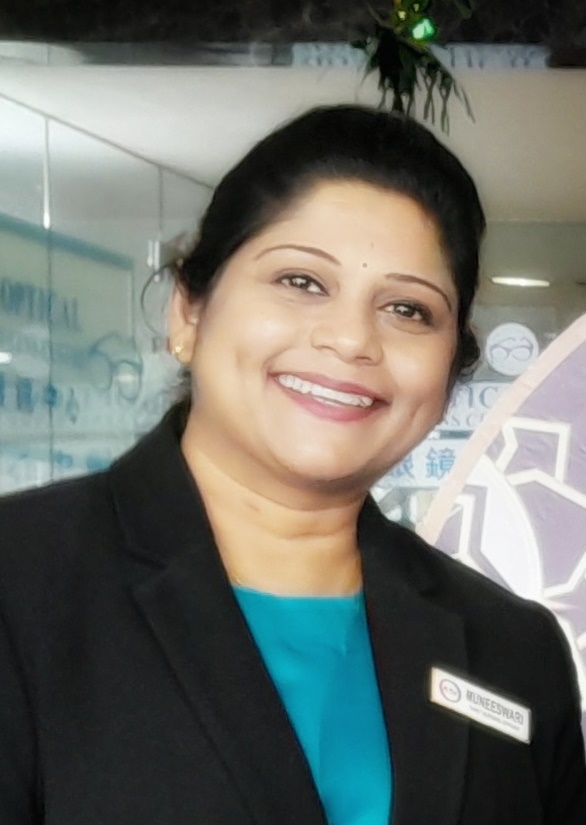KOTA KINABALU: The nursing profession is taken for granted by some people. For those who know nursing as a job it is just another venue to earn a living. In some ways this is true, but nursing and nurses go beyond what is perceived by most people. They are a group of people, men, and women who have to drag up a part of themselves and go beyond that extra mile for others under their care.

Nurses have to look beyond the blood, bodily issues and other types of gory sights and sad situations, that most people outside of the profession will not be able to do.
Caring is one of the traits that a nurse should have and is one of the leading qualities of the profession. It makes all the difference to patients and their stay in the hospital, and of course this marks the success of a nurse in the profession.
The nurse should also have strong communication skills that allow them to understand the needs of the patients as well as their families. Without communication skills, patients may feel neglected or uncared for, which of course can impact recovery and willingness to adhere to nurses’ recommendations among others. This will also allow her to communicate with other nurses and doctors and related personnel. .
Nurses should also have empathy for their patients. It is too easy to become desensitised after working with and caring for patients in various stages of malaise. A good nurse shows empathy to each patient, almost always thinking of the patient and how it may be if the shoe is on the other foot.
Muneeswari Velautham, the Chief Nursing Officer of KPJ Sabah shares this knowledge garnered through her nursing career that spans 26 years. Formerly serving in KPJ Klang she has been in various departments in the hospital including surgical, medical, maternity, Labour and Delivery, Intensive Care Unit, and Accident and Emergency.
This experienced nurse, who is a matron says she is passionate about her profession, and wants to share her knowledge and provide guidance to the next generation of nurses. As a matron, she wants to bring the nursing potential for the service to another level.
She shares that those services that nurses need to have are compassion and empathy, with attention to detail. Although they may be under immense pressure they need to focus on their work at hand, and not be carried away by the situation.
“We do have heartaches when we lost someone we are caring for. We know how the family feels and inwardly we get upset too. But of course, we will always remain professional and try our best for our patients and their family. It helps that when we go home and talk to our loved ones about it,” she shares.
However, duty calls for the nurses to put their patients’ welfare before their own, often going sleepless when on duty at wards and when on call. During their shifts, nurses exercise a unique balance of physical and emotional stamina that few other industries encounter.
The sense of duty and stoicism are shown through the two and a half years of the Pandemic, where the people thronged to the hospital for help. It is a dark passage in the history of the medical and healthcare sector. People are scared and don’t know what to do with the covid-19 pandemic. The first wave of the pandemic in Sabah is a time of fear and uncertainty.
For the medical people in hospitals, called the frontliners, it is a time of upheaval, that is, managing the team in such a way that the pandemic patients are taken care of as well as the regular patients at the wards and the emergency and ICU section.
“I think that the pandemic taught us a great lesson, especially when nursing staff got infected with covid-19. We learned to work with minimal resources and staffing. The great teamwork and support personnel were very much needed at that time.”
She says that there is a shortage of nurses in Malaysia, as some trained nurses will leave for better-paying jobs in private hospitals and hospitals in other countries such as the Middle East. Nurses are in demand in those countries.
“In Sabah, it’s still stable,” she shares.
Talking about her duties in KPJ Sabah, she shares she does her rounds to patients who are critical. Other than that she meet with with Managers and Nurses on duties to ensure that nothing has been overlooked or neglected.
Besides that she also reviews clinical notes and documentations and evaluate the nursing care services periodically. She investigates matters that need counselling, asses clinical incidents. When necessary she conducts detailed investigations about the root cause of analysis and provide improvement and precautions to overcome future related clinical issues.
On a personal note, Muneeswari, who hails from Kajang, says she is enjoying Sabah since she arrived here about five months ago and is looking forward to doing a little bit of sightseeing. When everything settles down for her, she will be joined by her family. -BNN






